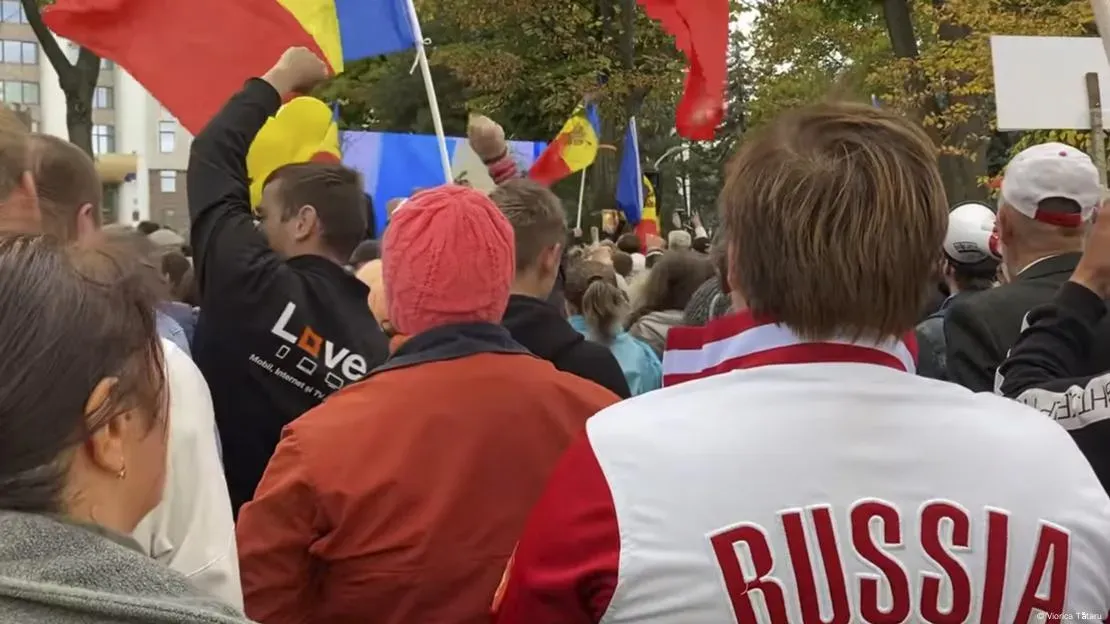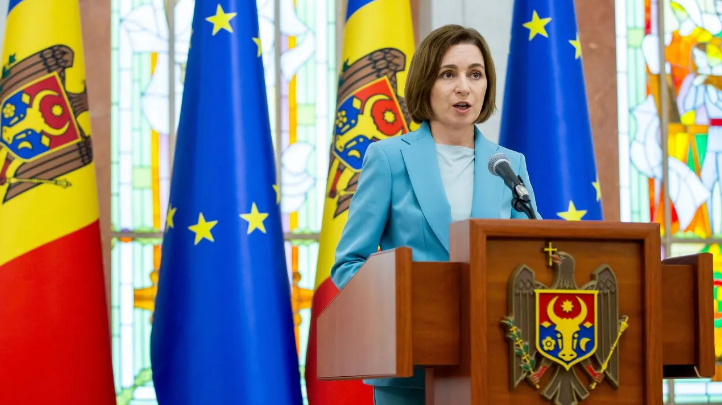
Russian Covert Influence: Kremlin-Orchestrated Unrest in Moldova
For over three decades, since the dissolution of the Soviet Union, Moldova has been the target of an intricate campaign of Russian interference, ranging from military aggression, political disruption and Moscow using energy dependence as leverage. In more recent years, Russia has expanded its remit, combining disinformation, financial incentives, and paramilitary-style training to disrupt Moldovan democratic progression.
As Ukraine’s neighbor, Moldova is facing mounting pressure as the war drags on next door. With energy shortages deepening and Russian missiles breaching its airspace, paid protesters are being used to stir unrest in the capital.
At the heart of the allegations is Ilan Shor, an exiled, Kremlin-linked Moldovan oligarch, whose party has long operated at the intersection of corrupt influence and pro‑Russian provocation. Shor and his affiliates are accused of facilitating protests through direct payments to participants, arranging transportation, and orchestrating disinformation campaigns, aimed at shifting political sentiment away from the pro‑European government of President Maia Sandu.
Foreign Training

While protest payments within Moldova were previously modest (around €20 per day or €80 per night to participants brought to Chisinau), a more alarming disruption effort lies in the overseas training programs. According to the Moldovan police, hundreds of youths were taken abroad, under the guise of cultural exchanges. They were instead given training in riot tactics and methods of causing unrest, in locations including Russia, Bosnia, and Serbia.
Training camps overseen or tied to Russian Private Military Companies (PMC) taught recruits crowd destabilization, sabotage, improvised weaponry, and urban-ambush tactics. Reports indicate that over 300 people, many from economically marginalized areas like Gagauzia or Transnistria, travelled to these remote camps to conduct training in these methods. Logistical operations, including travel and accommodation, and payments of around 1,000 Moldovan lei per person, were allegedly financed through Shor’s “Evrazia” network, utilizing shell companies in Russia.
Balkan Insight reported details of the scheme via a Moldovan trainee, Maxim Rosca, who recounted being recruited through personal connections, and undergoing paramilitary drills in wooded camps across the Balkans. He was paid around $500 in cryptocurrency for ten days of training, which included drone operations and public disruption tactics. Authorities have subsequently linked these schemes to attempts to destabilize the presidential election and EU referendum.
Sandu Fires Back

Beyond physical disruption, Russia’s hybrid strategy extends online and into religious circles. The “Matryoshka” disinformation campaign leverages fake news, manipulated logos, and AI-generated visuals to undermine Sandu’s government, with false narratives about corruption, election fraud, and her personal conduct, spreading across numerous social media platforms. A Moldovan intelligence report further revealed the exploitation of religious channels, where members of the clergy were allegedly paid up to $1,000 to promote pro‑Russian messages, after returning from training sessions abroad.
These developments have sparked strong condemnation from the Moldovan leadership. President Maia Sandu decried what she termed an ‘unprecedented assault on our country’s freedom and democracy,’ accusing foreign forces of funding protests, spreading disinformation, manipulating voters, and fostering unrest. Moldovan police also uncovered a separate incident, where protest organizers, including foreign citizens, were allegedly promised $10,000 to incite mass disorder, leading to arrests and blocked border entries of foreign operatives, some suspected of ties to PMC Wagner Group.
Elections Ahead
With Elections rapidly approaching and due in September, Ilan Shor has ramped up anti-Government activity, promising in a video message from Moscow, ‘to pay $3,000 a month to anyone who joins anti-Government protests in Chisinau’s Great National Assembly Square’. His actions highlight the relentless efforts of Russian-backed individuals to further the Kremlin’s sphere of influence abroad, whatever the cost.
In response, Moldova has bolstered its resilience, deploying hybrid-threat units, securing EU backing, extending the European Union Partnership Mission, and enhancing cybersecurity cooperation. The European council enhanced restrictions against Shor, 22 associates and 5 entities, subjecting them to asset freezes, limiting access to economic resources and banning them from entering or transiting through EU member states.
Related Articles
